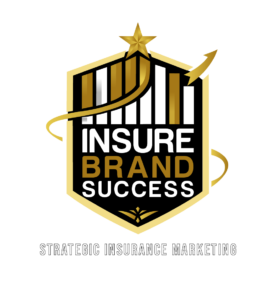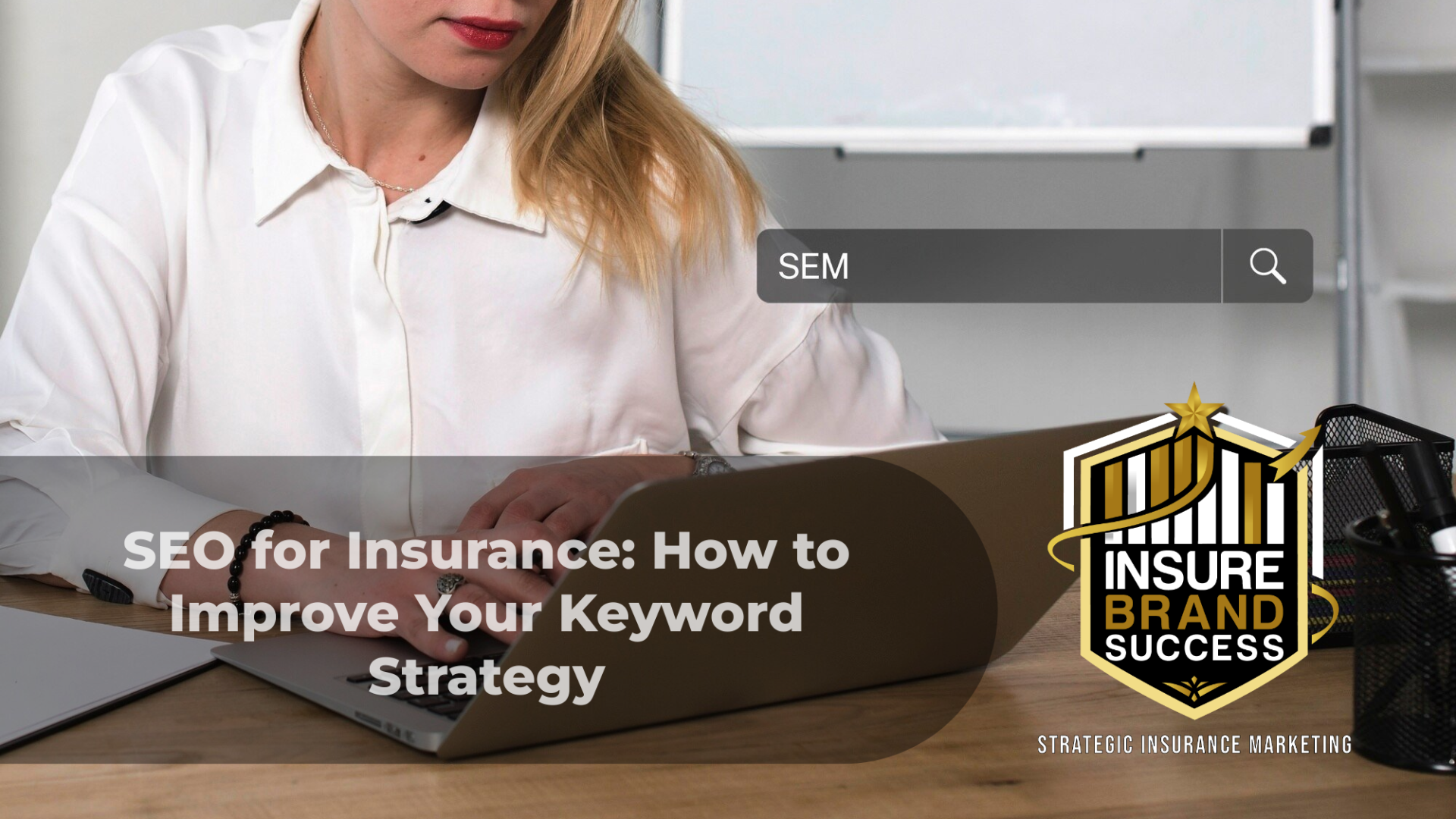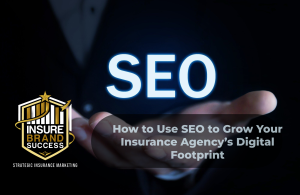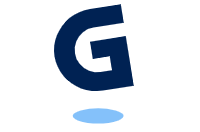Understanding the Role of SEO in Insurance Marketing
Search engine optimization (SEO) isn’t just a buzzword in today’s digital world—it’s a foundational strategy for any insurance agency looking to stand out in a competitive market. With more consumers than ever relying on Google and other search engines to evaluate their options, SEO in insurance marketing has become not only relevant but indispensable.
When a potential customer types “auto insurance near me” or “best life insurance policy” into a search engine, the results they see first are those backed by a strong, targeted SEO strategy. If your agency isn’t appearing on the first page, chances are you’re missing out on a significant share of qualified leads. That’s why understanding and investing in insurance marketing through SEO is critical for long-term success.
A robust SEO approach helps your agency:
- Improve visibility on search engines
- Drive organic traffic from potential policyholders
- Increase lead conversions by matching content to search intent
- Build credibility and trust in the digital space
We know that not all traffic is equal. When we work with insurance professionals, we focus on comprehensive insurance marketing strategies that are driven by data, performance metrics, and user behavior insights. By identifying what your audience is actually searching for, we can align your content and services to meet them exactly where they are in their journey.
At the heart of all of it? Targeted, intentional keywords that attract the right prospects. These aren’t just industry terms—they’re specific, search-optimized phrases that reflect how real people look for insurance products and services online. Using these keywords strategically across your website, blog content, landing pages, and metadata ensures that your digital presence is both discoverable and relevant.
An effective SEO campaign also involves on-page optimization, high-quality content creation, backlink development, and continuous performance tracking. But none of that matters if the foundation—your keyword strategy—isn’t solid. That’s why we put such a strong emphasis on understanding your audience’s search behavior, regional trends, and competitive landscape.
SEO in insurance marketing is not a one-time project—it’s an evolving, long-term commitment that pays dividends. The digital insurance space is only getting more crowded. Agencies that invest in SEO now are setting themselves up to lead in both visibility and credibility.
Why Insurance Keywords Require a Specialized Approach
Unlike other industries, insurance relies heavily on trust, compliance, and education. Consumers aren’t just shopping for the best price—they’re making decisions that affect their financial future and security. That’s why insurance keyword strategies must go far beyond basic metrics like search volume or keyword difficulty. A truly effective SEO plan must take into account the unique dynamics of the insurance landscape.
When building out our keyword research and content strategy, we consider critical factors that are specific to the insurance industry:
- Regulatory language compliance – Insurance is a highly regulated sector, which means we can’t just use promotional language freely. Keywords must align with approved terminology to ensure compliance with state and federal guidelines.
- Localized search intent – People searching for insurance are often looking for services tailored to their specific location. Optimizing for geo-specific terms helps capture high-intent traffic in areas where your agency operates.
- User trust factors – Keywords should reflect not only what users are searching for but also instill confidence. Including words like “licensed,” “trusted,” or “family-owned” can improve click-through rates and engagement.
- Long-tail keyword opportunities – Instead of competing for ultra-broad terms, we focus on longer, more specific keyword phrases that speak directly to the user’s needs and intent.
Take this as an example: Trying to rank for “car insurance” might get a lot of impressions, but it won’t necessarily bring in the right leads. It’s too broad, too generic. In contrast, targeting a phrase like “affordable auto insurance for families in Phoenix” connects directly with a specific audience, at a specific stage of their search—those actively looking for a solution that meets their needs and location.
It’s about meeting the user exactly where they are in their buying journey. That means aligning content and SEO efforts with real-world search behaviors, not just keyword tools. By doing so, insurance agencies can attract qualified leads who are more likely to convert, rather than casting a wide net and hoping for results.

Building a Keyword Strategy That Converts
To elevate your digital marketing for insurance agencies, we recommend a structured and intentional approach to building a keyword strategy—one that prioritizes quality leads, buyer intent, and search behavior over vanity metrics.
1. Define Your Target Audience
The first step in crafting an effective keyword plan is understanding exactly who you’re targeting. Are your prospects young drivers, homeowners, retirees, or small business owners? Each group has distinct needs, behaviors, and search patterns. For example, a young couple might be searching for “cheap life insurance,” while a contractor is more likely to look for “commercial liability insurance for contractors.”
This clarity allows you to tailor your keyword portfolio with precision. Generic keywords might generate traffic, but without matching the user’s needs, they won’t drive conversions. A targeted keyword approach ensures that your message resonates with the right audience from the first click.
2. Conduct Competitor Research
One of the most effective ways to refine your strategy is by analyzing who’s currently outranking you. Using SEO tools like SEMrush, Ahrefs, or Moz, you can uncover valuable insights, such as:
- Keyword gaps – Discover which high-value terms your competitors are ranking for that you’re not.
- Content opportunities – Identify content types (blogs, FAQs, guides) that are winning in search results.
- Backlink strategies – Learn which sources are linking to your competitors and how you can build a stronger backlink profile.
The goal here isn’t to mimic competitors—it’s to outperform them with more relevant, better-optimized, and deeply targeted content that aligns with your audience’s intent.
3. Focus on Long-Tail Keywords
While broad keywords like “insurance” or “car insurance” may bring in traffic, they often lack the specificity needed to drive conversions. That’s why we place a strong emphasis on long-tail keywords—high-intent, lower-competition phrases that reflect real-world queries.
Consider phrases such as:
- “Life insurance for new parents in Texas”
- “Business liability coverage for restaurants”
These keywords don’t just attract more relevant visitors—they connect with users who are actively seeking solutions. This makes them more likely to engage, convert, and become long-term clients.
Long-tail keywords also allow you to build a deeper, more nuanced content strategy. You’re not just targeting volume; you’re creating content that speaks directly to specific needs, locations, and life situations.
4. Group Keywords by Funnel Stage
Another often overlooked—but highly effective—tactic is organizing your keyword portfolio by buyer journey stage. This ensures your content meets users with the right message at the right time.
- Top of Funnel (ToFu) – These are early-stage searchers looking for information. Keywords like “how does life insurance work?” help establish your agency as a trusted educational resource.
- Middle of Funnel (MoFu) – Prospects here are comparing options. Target keywords like “term vs whole life insurance” to guide decision-making and demonstrate your value.
- Bottom of Funnel (BoFu) – These users are ready to act. Action-oriented phrases such as “buy term life insurance today” are crucial for conversion-focused landing pages and calls-to-action.
By mapping your keywords to these funnel stages, you create a cohesive and strategically layered content experience that supports users from first touch to final decision.
Technical SEO Meets Content Strategy
Effective SEO is more than just keywords—it’s the synergy between on-page optimization, technical health, and high-quality content that elevates your search rankings and drives qualified traffic. In our approach to digital marketing for insurance agencies, we bridge the gap between technical SEO and content strategy to ensure every element of your website is working toward the same goal: visibility and conversion.
Optimize On-Page Elements
Every page on your site must serve a purpose—not just for your visitors, but for search engines as well. That means fine-tuning your on-page elements to maximize both user engagement and SEO performance. Here’s how we do it:
- Targeted keyword in the H1 and H2 – Each page should be built around a clear, strategic keyword. We ensure the targeted keyword is placed in your main header (H1) and reinforced in subheadings (H2), signaling relevance to both users and search engines.
- Strategic use in the meta title and description – Your meta tags are your first impression in search results. We craft compelling, keyword-rich meta titles and descriptions that not only reflect the content but also improve click-through rates.
- Optimized alt text for images – Images aren’t just for aesthetics—they’re also an SEO asset. We include descriptive, keyword-aligned alt text for every visual element to improve accessibility and image search visibility.
- Internal linking to core service pages – One of the most powerful ways to strengthen site authority and guide user navigation is through internal links. Every page includes relevant links to cornerstone services like SEO for Insurance Brokers and AdWords for Insurance Agencies, reinforcing your site architecture and helping search engines crawl more effectively.
Technical SEO ensures your site is fast, secure, and structured correctly. Content strategy ensures the right message is delivered to the right audience. Together, they create a powerful foundation that supports every campaign you launch—whether you’re driving organic traffic, capturing leads, or building brand trust.
Improve Site Speed and Mobile Performance
Site performance is a critical ranking factor—and it directly impacts user experience. Google’s move to mobile-first indexing means your website is judged primarily by how it performs on smartphones and tablets, not desktops. That makes site speed and mobile performance non-negotiable in any effective SEO strategy.
Users today expect websites to load in under three seconds. If your site is slow, visitors will bounce—and search engines will notice. Slow-loading pages lead to:
- Lower engagement and time-on-site
- Higher bounce rates
- Decreased conversions
- Lost visibility in search engine results
To stay competitive, it’s essential to regularly audit your site’s performance using tools like Google PageSpeed Insights. These tools evaluate your site’s loading times, mobile responsiveness, and overall technical health, offering clear suggestions for improvement.
Key areas we focus on include:
- Reducing image file sizes without sacrificing quality
- Minimizing CSS and JavaScript to streamline code
- Leveraging browser caching for repeat visitors
- Optimizing server response times to speed up load performance
- Using responsive design to ensure smooth functionality on any device
Remember: a fast, mobile-optimized website not only helps you rank better—it creates a smoother experience that keeps visitors engaged and leads to more conversions. If you’re investing in digital marketing for insurance agencies, speed and mobile usability must be top priorities.
Secure Your Site
In today’s digital environment, website security is not a nice-to-have—it’s a mandatory standard, especially in sensitive, regulated industries like insurance. Running a secure site using HTTPS is not only a basic SEO requirement, it’s also essential for building trust with users.
Google has confirmed that HTTPS is a ranking factor, and browsers like Chrome now flag non-secure sites as potentially dangerous. For an insurance agency handling inquiries, form submissions, and potentially sensitive user data, the implications of running an unsecured website are serious. Lack of HTTPS can result in:
- Lower search rankings
- Reduced user confidence and increased bounce rates
- Potential compliance concerns, depending on your jurisdiction
By securing your site with HTTPS, you:
- Encrypt all data transmitted between the user and your server
- Demonstrate a commitment to protecting personal information
- Improve your chances of ranking well in organic search
- Reduce the risk of site tampering or cyberattacks
Whether you’re running landing pages, contact forms, or policy quote tools, a secure site reinforces your professionalism and reliability. For insurance agencies investing in digital marketing, HTTPS is one of the simplest and most impactful upgrades you can make.
Case Example: Keyword Overhaul for a Regional Insurance Broker
Real-world results are where strategy proves its value. One of our clients—a mid-sized regional insurance agency—came to us with a clear challenge: solid products, strong local presence, but low web traffic and minimal online leads. Despite offering valuable services, their digital reach simply wasn’t connecting with their target audience.
We began with a comprehensive keyword audit and quickly uncovered several issues holding them back:
- Excessive focus on broad, non-converting keywords – Terms like “insurance” or “home insurance” dominated their content, which brought irrelevant traffic with little buyer intent.
- Underuse of geographic and demographic modifiers – The agency was not targeting phrases like “home insurance in Charlotte” or “affordable life insurance for seniors,” missing huge opportunities for local visibility.
- Lack of alignment with the buyer’s journey – Content didn’t match where users were in their decision-making process, resulting in high bounce rates and poor engagement.
To address these issues, we implemented a fully customized keyword strategy tailored to the agency’s location, services, and ideal customer profiles. This included:
- Identifying and targeting long-tail keywords with geographic specificity
- Creating content segmented by funnel stage, from awareness to action
- Strengthening internal links to core services like SEO for Insurance Brokers and AdWords for Insurance Agencies
Within just six months, the impact was clear:
- Organic traffic increased by 73%
- Lead form submissions tripled
- They ranked on page one for over 40 targeted long-tail keywords
This dramatic turnaround didn’t come from guesswork—it was powered by our integrated, data-driven insurance SEO services. By aligning keyword strategy with real search intent, technical optimization, and quality content, we helped this agency not only reach their audience but also convert them into loyal clients.
Using Analytics to Guide Strategy Adjustments
SEO isn’t a one-and-done process—it’s an ongoing cycle of analysis, optimization, and iteration. To ensure lasting results for our clients, we treat keyword strategy as a living system that evolves with user behavior, algorithm changes, and market dynamics.
That’s why we track keyword performance monthly and use data to inform every adjustment. Our analytics process centers around four key indicators:
- Ranking shifts – Are your top keywords moving up or down? We monitor fluctuations to identify which pages need reinforcement or refinement.
- Click-through rates (CTR) – Even if a page ranks well, it needs to entice users to click. A low CTR signals an opportunity to optimize metadata or improve content relevance.
- Bounce and exit rates – These metrics reveal whether visitors are finding what they expected. High bounce rates often point to keyword mismatch or content gaps.
- Conversion metrics – Traffic means little without action. We assess how well each keyword path contributes to goals like form submissions, quote requests, or calls.
We use platforms like Google Analytics and Google Search Console to dig into this data. These tools allow us to fine-tune our strategies at every level—from refining title tags to reworking content that underperforms.
This analytics-driven approach supports our client acquisition and retention programs, keeping them both agile and impactful. By responding to real-time insights, we ensure our insurance SEO services remain not only relevant, but consistently effective in driving measurable growth.
Enhancing Keyword Strategy with Complementary Channels
A well-researched keyword strategy doesn’t just elevate your SEO—it enhances the performance of every other digital marketing channel you invest in. When your messaging is unified across platforms, your brand presence becomes stronger, more cohesive, and more effective at capturing attention and converting leads.
Here’s how we integrate keyword insights across complementary marketing efforts:
Paid Search (AdWords)
Our SEO work directly supports AdWords for insurance agencies. By leveraging keyword performance data from organic search, we can refine paid search campaigns to target high-converting terms and eliminate wasteful spend. This ensures complete alignment between organic and paid search, increasing ROI while reinforcing brand messaging across all search engine results.
For example, if “affordable renters insurance in Austin” performs well organically, we know it’s a strong candidate for a paid campaign. The result is more qualified traffic from users who are ready to act.
Content Marketing
Great content starts with great keywords. We use SEO insights to drive our content marketing strategy—developing blogs, guides, and FAQ pages around long-tail keyword queries that your audience is already searching for.
Educational content like “what does umbrella insurance cover?” or “how to choose the right liability policy” doesn’t just rank well—it builds trust, answers real questions, and positions your agency as an authoritative resource. This dual impact boosts both search visibility and user engagement.
Email Campaigns
Your insurance email marketing campaigns can also benefit from keyword research. We use keyword themes to shape subject lines, calls-to-action, and content within emails—ensuring that your messaging is consistent with what users are seeing on your website and in search results.
For instance, if “term life insurance for young families” is trending, it becomes a compelling angle for a segmented campaign targeting new parents. This enhances both open rates and conversion potential.
Social Media
Our social media strategies are also keyword-informed. By identifying trending keywords and hashtags, we craft content that resonates on platforms like LinkedIn and Facebook, where many users seek financial and insurance advice.
Keyword-aligned social posts help reinforce your authority while increasing engagement. For insurance agencies looking to expand their reach and visibility, this unified approach creates a flywheel effect where SEO and social amplify each other.
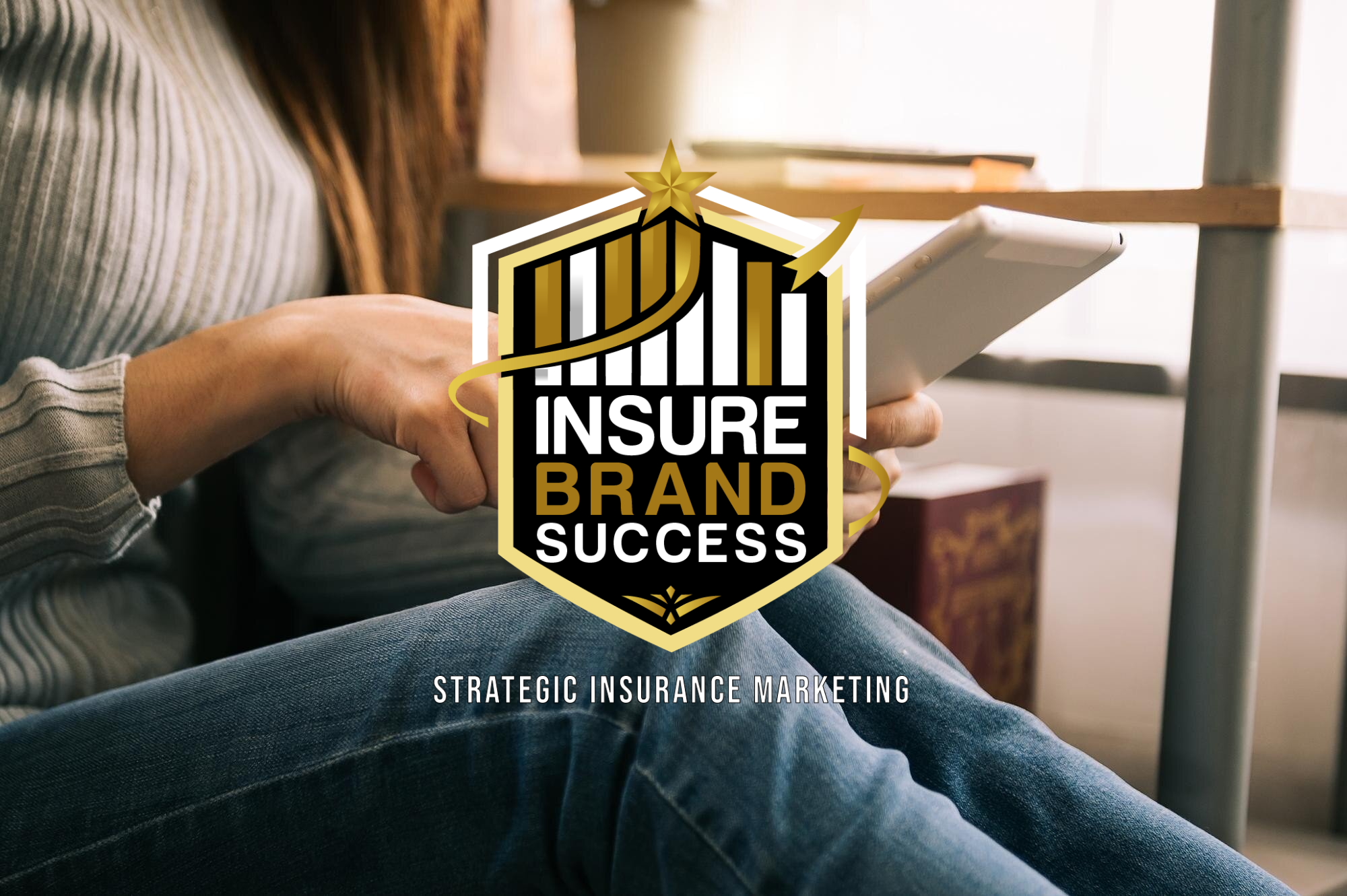
Staying Compliant with SEO in a Regulated Industry
The insurance industry is one of the most tightly regulated sectors. Our keyword strategies adhere to:
- National Association of Insurance Commissioners (NAIC) guidelines
- Ethical marketing practices outlined by the Small Business Administration
- Insurance Information Institute resources
Compliance is non-negotiable. That’s why every keyword and content decision we make considers both marketing performance and regulatory requirements.
Tools and Tech We Recommend for Keyword Success
To power our strategies, we use a suite of trusted SEO tools:
- SEMrush: For keyword research and competitive analysis
- Ahrefs: For backlink insights and keyword gaps
- Google Search Console: To track performance and indexing issues
- Yoast SEO: For on-page optimization in WordPress
- Screaming Frog: For full-site technical audits
These tools help us deliver reliable, measurable results for our clients.
Building Long-Term Success with SEO
A truly great keyword strategy goes far beyond improving search rankings—it drives sustainable, measurable business growth. When your agency shows up consistently across the entire customer journey—from early research to final decision—you’re doing more than earning traffic. You’re building trust, credibility, and lasting relationships with your ideal clients.
We don’t believe in one-size-fits-all solutions. Every insurance agency has unique goals, markets, and regulatory nuances. That’s why we tailor our strategies around your agency’s strengths, your audience’s intent, and the specific rules that guide your sector.
By combining deep industry expertise with the latest modern SEO practices, we help insurance agencies:
- Rank for the terms that matter most
- Engage users with content that speaks to their needs
- Convert interest into qualified leads
- Build a digital presence that supports long-term growth
Whether you’re looking to expand regionally, launch a new product, or simply compete more effectively online, we bring clarity, structure, and momentum to your marketing.
If you’re ready to boost your visibility and bring more qualified leads through your digital front door, explore our SEO solutions for insurance or book a consultation today. Let’s build a strategy that works for today—and scales for tomorrow.
